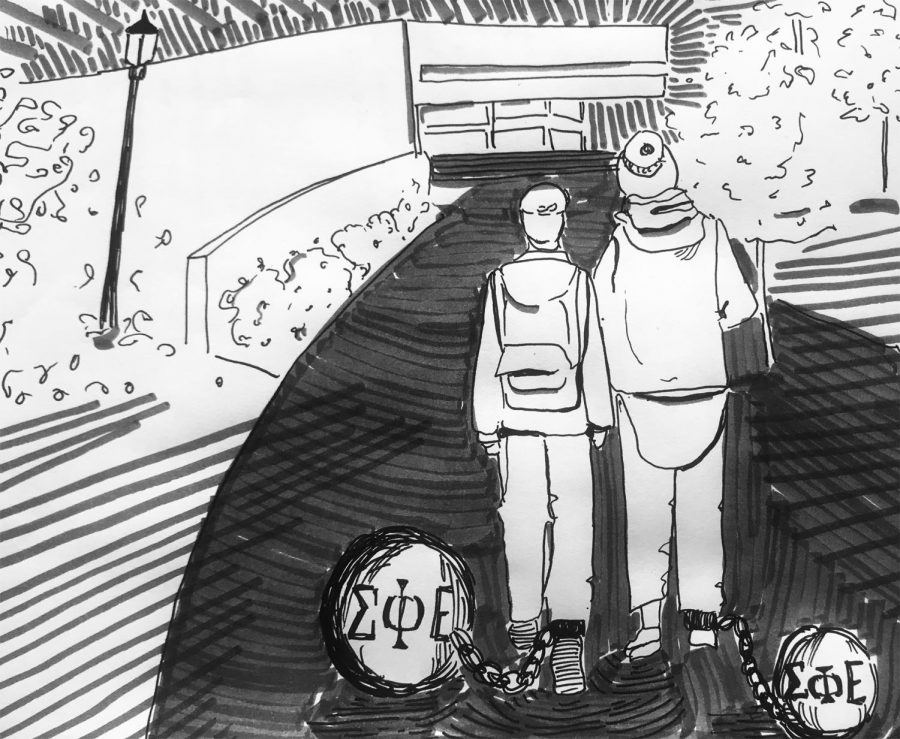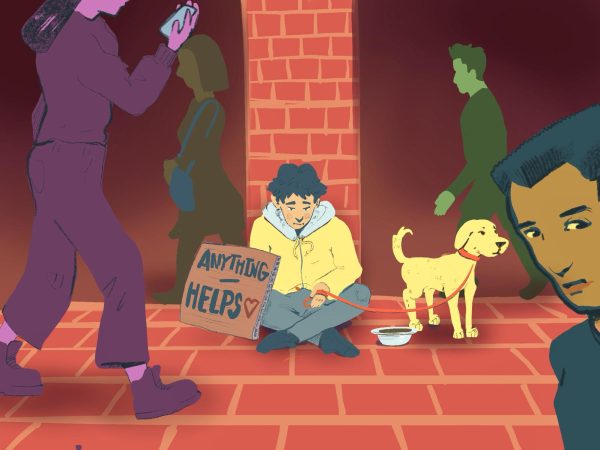Fraternity life & rape culture
September 12, 2018
This story updated at 12:24 September 17 to reflect the correct question on the survey and to include who added it. The fraternity was found not guilty by a University investigation.
A UVM fraternity passed around a survey in 2011 where the question “if you could rape someone, who would it be?” appeared. Although the question was added by and individual and the fraternity was found not guilty, they left campus.
This year, Sigma Phi Epsilon is making an effort to return.
In 2012, they faced a student sexual harassment policy violation, unrelated to the questionnaire, and retaliation against an individual for raising sexual misconduct allegations.
Considering the fraternity’s past, we are drawn to question, what about this particular organization attracts people to join year after year?
Fraternity and sorority life on campus is intended to “set the standard for developing lifelong leaders with the ability to collaborate and advocate for justice; contributing to positive change locally, regionally and nationally,” UVM’s website states.
But, when the University allows a fraternity like SigEp to come back with its history and the baggage that history carries, they are failing to adhere to the concept of “positive change” they envision for Fraternity and Sorority Life.
The typical stereotype of a fraternity is a rowdy, “Animal House” style group. Fraternities historically have been, and continue to be, a breeding ground for toxic masculinity, the reinforcement of misogynistic behavior and homophobic outlooks.
SigEp’s dismissal sent a message that this type of behavior and conduct is not okay. Yet, letting them back on campus weakens this message.
Although the parties responsible for the survey and sexual assault violations are no longer on campus, the question becomes “is the fraternity or the individuals to blame?”
The fraternity is being allowed back on the conditions that they provide a concrete plan for membership development, alcohol education, risk management, gender violence and sexual harassment prevention training for fraternity members. SigEp also will be placed on disciplinary probation for their first two years.
Yet, these requirements are concerning; evidently basic moral values aren’t common knowledge and need to be reinforced with this plan, if it’s even effective. Sexual assault and rape are not jokes or bureaucratic issues that can be resolved by signing a piece of paper saying you won’t do it again. UVM ought to treat this as a very serious moral issue.
The University has the opportunity to set an example for other universities that this kind of toxic behavior will not be tolerated on campus. UVM has to have a firm hand in its decision making and not change its mind so easily in allowing an organization like this back on campus.

















![Can’t buy me [self] love](https://vtcynic.com/wp-content/uploads/2024/04/self-care-FINAL-600x398.jpg)

Mia burges • Sep 12, 2018 at 6:11 pm
The real question on the private survey was: If you could rape someone who would it be? The expected answer from new member of course would be you can not rape. I remember this incident and coverage very well. What a media disgrace. You should apologize.
Fake news spotter • Sep 12, 2018 at 5:30 pm
I would urge you to look at the investigation UVM completed after the house was closed down. The whole allegation and story should be shared with the current UVM community. If I am correct, UVM ended up clearing the charged group, though they still stood by their decision to close the house down.
In today’s time where fake news is a thing, you might want to check these “allegations”